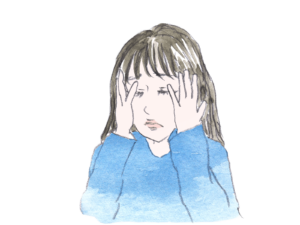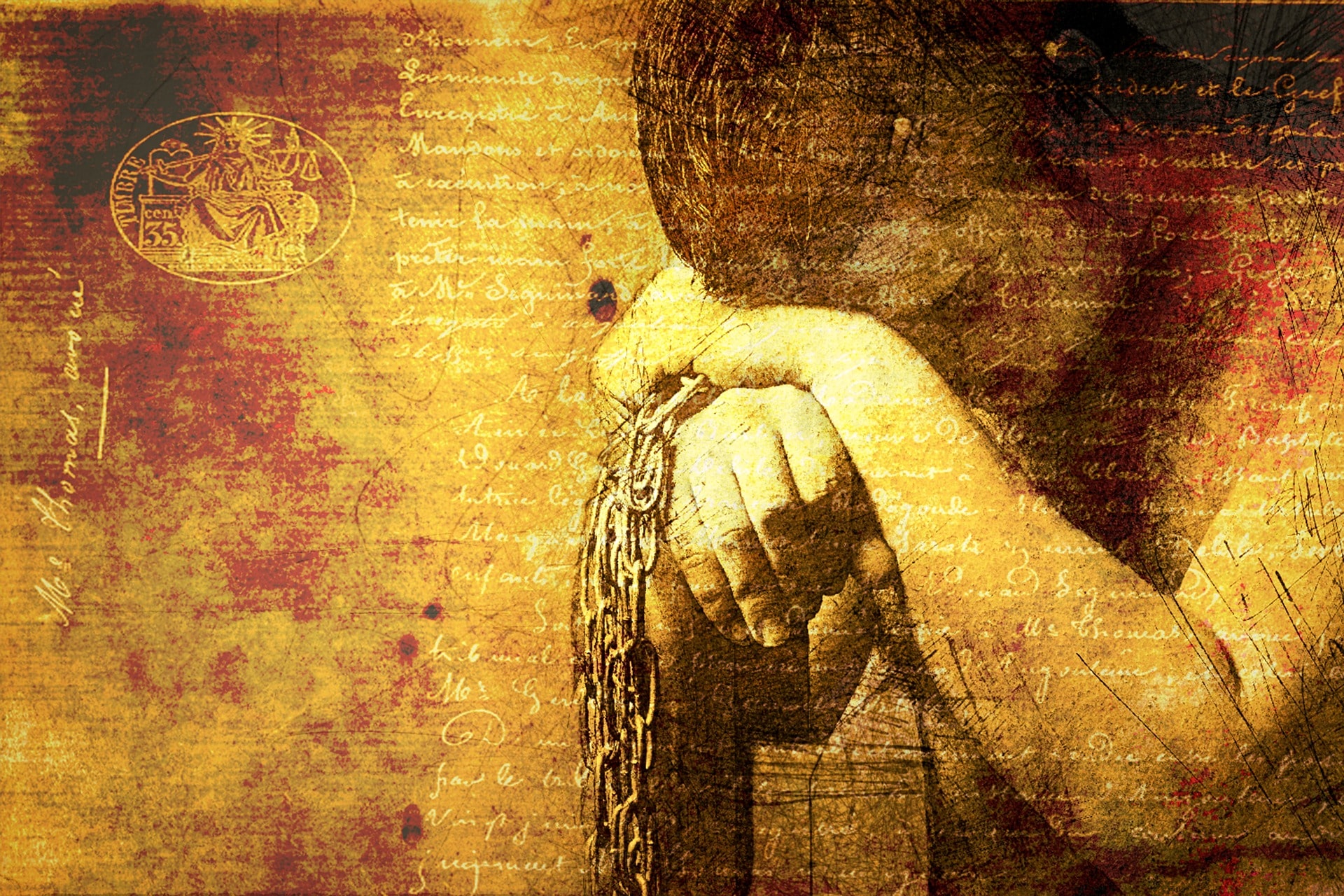Do you ever feel guilty or anxious for some reason after a fun trip or a good time with friends? Actually, this may be a state of mind called “happiness phobia.
This article will explain in detail the mechanism of this mind that keeps happiness away and how to overcome it through mindfulness and self-compassion to accept current feelings.

Contents
Guilt about having fun is caused by “happiness phobia”
Happiness phobia is a psychological condition in which one tries to avoid happy situations and feelings. We feel guilty and anxious about events that should be enjoyable , and we keep happiness away from ourselves.
Specifically, the following symptoms are manifested
- Feeling guilty upon achieving success
- Resistance to having a happy romantic relationship
- Feel anxiety after a good time
- Feel guilty or apologetic for being happier than others around them
Happiness phobia is difficult to recognize because the person unconsciously avoids happiness regardless of his/her own will.
As a result, many people suffer from this problem for many years, but are unable to take appropriate measures to deal with it.
Causes of Happiness Phobia
Mosen Jochanlou and Dan Weijers [1] have identified four reasons for happiness aversion.
- The idea that when you are happy, bad things happen to you
- The idea that happiness makes you a bad person
- The idea that expressing happiness is bad for you and others
- The idea that pursuing happiness is bad for oneself and others
(Partially modified)
Generally, negative thoughts about being happy are thought to be the cause of happiness phobia. Fear of happiness is a complex emotion that is created by a variety of factors.
So why do we feel guilty about being happy? There are many factors that contribute to this.
Belief that happiness is unstable.
People who believe that happiness is unstable and vulnerable are afraid that it will not last. Especially those who had unhappy childhood experiences may unconsciously refuse to be happy.
Perfectionism
Perfectionists always set high goals and blame themselves for not achieving them. Therefore, they feel that they cannot allow themselves to be happy.
The Lonely Person
Lonely people feel that they do not deserve to be happy. Compared to those around them, they feel left out.
Have avoidant and anxious attachment styles
In psychology, the type of attachment formed by the mother-child relationship in childhood is called an “attachment style. There are four adult attachment styles, and people with avoidant and anxious attachment styles tend to fear developing close relationships with others. They feel that they need to connect with others in order to be happy, but suffer from the inability to do so.

. belief in the paranormal.
People with a belief in the paranormal fear that happiness will negatively affect their lives. For example, some people believe that unhappy events will occur when they are happy. Also, beware of those who believe that they have used up all their luck….
Self-sacrifice
Some people are so eager to contribute to others that they end up sacrificing themselves. As a result, they feel guilty about their own personal happiness.
In a zany way, we can say that serious, insecure, and irrational thoughts are the cause of guilt.
How to deal with guilt after fun
So how can we overcome guilt after fun, which is the cause of happiness phobia? The recommended methods to overcome it are mindfulness and self-compassion.
Mindfulness
Mindfulness is the practice of focusing on the present moment and objectively observing one’s thoughts and feelings.
In the case of happiness phobics, they tend to feel anxious or fearful when they feel happy and avoid these feelings.
By practicing mindfulness, we can objectively observe and control these feelings.
Specific methods include the following.
Concentrate on your breathing.
Concentrating on the breath helps to calm the mind and bring it into the present moment. By simply repeating the breath without trying to control it, you will naturally become calmer and feel happier.
Label your thoughts and feelings
When you feel happy, you can observe your feelings objectively by labeling them in your mind as “happy,” “glad,” “joyful,” and so on. Putting your feelings into words makes it easier to understand and control them.
. without criticizing or judging.
It is important to simply observe your thoughts and feelings without judging or criticizing them. Negative thoughts such as “I should not feel happy” can exacerbate the happiness phobia. By accepting your thoughts and feelings as they are, you will be able to feel happiness.

Examples of mindfulness practice
∙ Meditation
Meditate in zazen meditation in a quiet place for 10 minutes every day. Concentrate on your breathing and simply observe your thoughts and feelings.
Mindfulness Walking
While walking slowly, become aware of the sights and sounds around you and the sensations in your body.
Mindfulness Eating
Concentrate on eating and observe the taste and texture of each bite.
It is important to continue mindfulness, even if it is a little bit each day. You may find it difficult at first, but as you continue, you will gradually realize the benefits.
It may take time to overcome happiness phobia, but practicing mindfulness will help you feel happy.
Related articles:.
Mindfulness: A List of Meditation Methods! Let’s learn how to use them differently!
Self-Compassion: Kindness to Yourself
Self-compassion means to have kindness and compassion toward oneself and to forgive oneself.
In the case of happiness-phobia, we may be harsh with ourselves and have a feeling that we cannot allow ourselves to be happy.
By practicing self-compassion, we can acknowledge, forgive, and allow ourselves to be happy.
Here are some specific ways to do this
▪ Say kind words to yourself.
When you feel happy, say kind words to yourself such as, “You did a good job,” or “It’s okay to be happy. By saying positive words to yourself without denying yourself, you will gain confidence and feel happier.
Forgive yourself.
Forgive yourself for avoiding happiness in the past and resolve to be happy in the future. By forgiving yourself and not dwelling on past failures, you will be able to move forward.
Do not compare yourself with others
We do not compare ourselves with others and aim to be happy at our own pace. By focusing on your own growth instead of comparing yourself to others and feeling depressed, you will be able to feel happiness.
Examples of self-compassion in practice
Make a list of positive words for yourself.
⇒Write down the good things about yourself and look at them every day.
Encourage yourself
⇒When you feel down, encourage yourself with words such as “Don’t worry” or “Everyone makes mistakes.
Reward yourself
⇒Reward yourself when you achieve a goal.
Self-compassion is about having love for yourself. Loving yourself makes it easier to feel happy. To overcome happiness phobia, it is important to take care of yourself.
By combining mindfulness and self-compassion, you can overcome happiness phobia more effectively.
By objectively observing your emotions with mindfulness and forgiving and loving yourself with self-compassion, you will be able to feel happy.
Related Article:
What are the Disadvantages of Self-Compassion? Explaining Misunderstandings and Cautions
Conclusion
Happiness phobia is a psychological condition in which we unconsciously try to avoid happiness. To break down this mental barrier that ruins success, love, and even good times with guilt and anxiety, and to achieve your true happiness, start taking action now.
By practicing the mindfulness and self-compassion described in this article, you can unblock your mind from feeling happy, forgive yourself, and accept yourself.
Related Article:
Psychological Ways to Eliminate Emptiness After Fun





